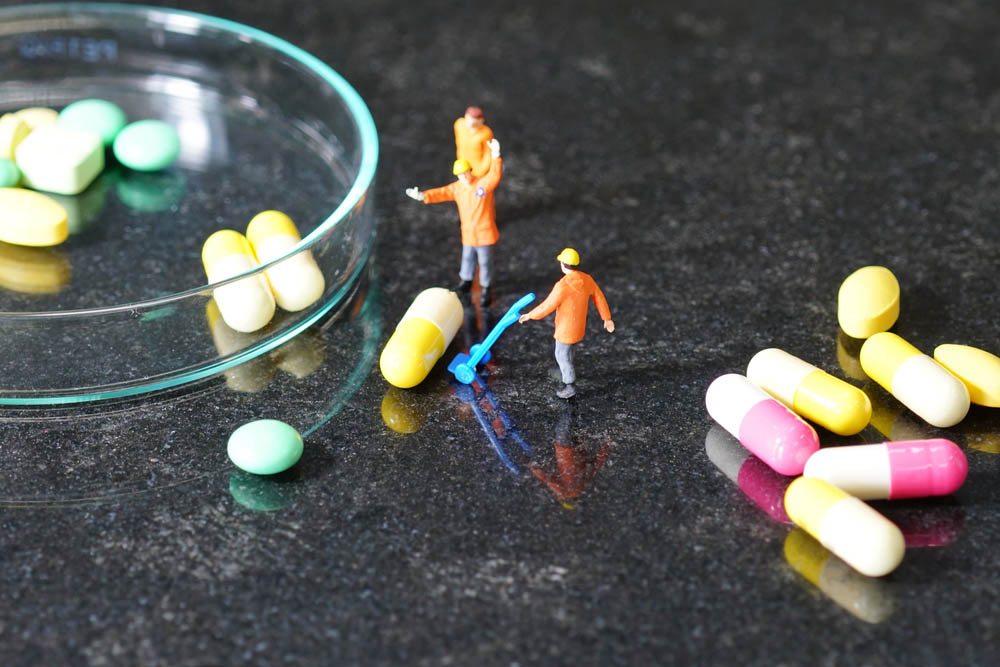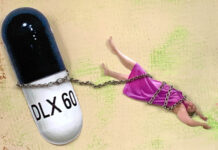Currently, antidepressants are among the most commonly prescribed drugs for a wide range of diagnoses, not just depression and anxiety. This includes treatment of negative symptoms of schizophrenia and the depressive phases of bipolar disorder, despite the fact that SSRIs can sometimes trigger manic episodes.
SSRIs are often the first-line treatment option. The typical approach is to start with one SSRI, and if there is no response or harmful effects occur, the patient is then switched to one or two other SSRI options. If these trials fail, the next step is usually to prescribe SNRIs, such as Effexor, Pristiq, or Cymbalta and, at times, adding Abilify as an augmentation strategy. Despite substantial evidence showing that antidepressants offer only marginal benefits over placebos, marketing campaigns have successfully convinced both the public and many prescribers that depression is caused by a “chemical imbalance” and that antidepressants are the “cure.”

Over the years I have been following Joanna Moncrieff, a British psychiatrist and academic. She is Professor of Critical and Social Psychiatry at University College London. She published a number of books such as Myth of the Chemical Cure: A Critique of Psychiatric Drug Treatment and The Bitterest Pills: The Troubling Story of Antipsychotic Drugs. According to Moncrieff, mainstream psychiatry’s theory of drug action is that psychiatric drugs work by healing some underlying brain abnormality, thus supporting the concept of biological psychiatry. This treatment approach is the ‘disease-centered’ model. This is in contrast to what Moncrieff calls the ‘drug-centered’ model, which suggests that psychiatric drugs are used not to heal a biological illness but for their own psychoactive effects, sometimes negative and sometimes positive. For instance, the drugs may cause emotional blunting that can be interpreted as lessening of depression symptoms. However, this numbing of emotion is de-humanizing. Being human is to have a range of emotions to properly react to the environment and to navigate relationships.
Antidepressant drugs have many other adverse effects. One of the most common is sexual side effects, which is devastating to intimacy and quality of life.
In my role as a director of integrative mental health at a recovery and mental health practice, I often see patients with complex mental health issues, substance use, a history of trauma, dysfunctional relationships, and problematic family dynamics. Many of these patients have been on SSRIs for years or decades. In addition, the patients are often on a combination of medications, and have developed physical dependence to some of them. These patients continue to struggle with mental illness that affects many areas of their lives, including work performance and social relationships. They often rotate from one prescriber to another in hopes of finding a better solution, but end up with the same results. In our experience, this tends to be the case with patients who are on long-term SSRIs. We also see patients who have been treated with stimulant medications such as Adderall and Vyvanse. A few of our patients have developed delusional thought disorder that persisted for months even after the medication was discontinued. These are the types of patients that are often referred to our practice. Our belief, based on what we see in our practice, is that chronic use of SSRIs and stimulant medications is likely contributing factor to patients becoming treatment-resistant.
I refer to the above-mentioned treatment methods as irrational polypharmacy. This happens when a new medication is introduced to counteract the side effects of a previous one or additional medications are piled on when the existing regimen fails to deliver strong results. As a result, patients end up on a number of medications, on which they are maintained for years. Over time, this regimen may lose its effectiveness because SSRIs and stimulant medication do not show long-term benefits. In fact, these patients may show more debilitating symptoms than those who discontinued their medication treatment earlier on. It appears to us that the current psychiatric practice is to keep patients on long-term medications, otherwise psychiatrists believe that the patients will experience a relapse of their symptoms. We often see that SSRI withdrawal syndrome maybe interpreted as a return of symptoms, so the patients are afraid to make any changes.
In my practice, we guide patients away from irrational polypharmacy and toward a more rational approach, with a plan to gradually taper off medications while maintaining optimal functioning. For years, we’ve recognized the issues tied to long-term SSRI use and have focused on safely tapering them. Our method involves a slow taper to minimize SSRI withdrawal syndrome. However, even with a cautious taper, some patients are highly sensitive and at risk for emotional instability. In such cases, we implement, what we call a step-down approach, temporarily replacing SSRIs with other therapeutic medications such as Lamictal or small amounts of risperidone or another class of antidepressants to temporarily lessen symptoms of anxiety, depression or agitation. Once the patient is successfully tapered off of SSRIs, we can start reducing other medications. In addition, we prescribe a personalized regimen of vitamins and amino acids to enhance the brain’s natural healing process. This holistic strategy helps restore the body’s capacity for self-regulation, gradually reducing reliance on medications. It promotes a journey toward wholeness, fostering resilience and long-term well-being.
Despite the array of pharmacological treatments, many patients continue to struggle with mental health and are often labeled as “treatment-resistant”. Unfortunately, the drug-first treatment approach tends to overlook patients’ personal histories and the underlying circumstances that contributed to the development of their mental health issues in the first place. I believe, as Gregory Bateson wrote, that the cause of mental illness is rooted “in the ecology of an individual’s mental experience—the intricate pattern of social relations, culture, and family in which we all move—not just the mind itself”.
During the earlier developmental years children learn about the world and form their identity through the culture they are in, social relationships and personal experiences. Unhealthy home environment is a significant factor that affects mental health. A child who grows up in a nurturing environment with attentive parents is likely to develop secure attachment and have much greater resilience to outside stressors. If those connections are strained, toxic, or chaotic, they can affect them profoundly, often contributing to mental struggles.
Our practice recognizes that a person’s maladaptive behavior and emotional dysregulation is closely related to the individual’s experiences and is maintained by dysfunctional family dynamics, lack of community support and unhealthy interpersonal relationships. The patients fall into a trap of solving their problems through biological interventions, while they continue to remain in unhealthy ecosystem. We believe that temporary use of pharmacological agents can have a role at helping individuals to get into a “window of tolerance”. The “window of tolerance” is a term that describes the optimal zone of emotional arousal where a person can function and thrive. Within this window, people can handle fluctuations in life’s circumstances more effectively—they’re able to feel emotions, process thoughts, and respond to situations without becoming overwhelmed. In this state an individual can have a greater capacity to engage in a therapy and to start working through unresolved trauma.
We often incorporate somatic therapies such as the somatic trauma approach and internal family systems (IFS). The somatic approach to trauma healing is rooted in Hakomi therapy techniques and incorporates a polyvagal trauma-informed perspective, emphasizing the somatic, relational, and clinical skills necessary for trauma transformation. IFS is founded on the principle that each individual possesses a system of protective and wounded inner parts, all guided by a core perception of self. As an evidence-based psychotherapy, IFS aids in healing by accessing and addressing these protective and wounded inner parts and is a highly effective tool, especially when combined with psychedelic-assisted psychotherapy.
In our practice we also offer ketamine-assisted psychotherapy (KAP) to enhance healing process. KAP allows patients to soften their defense systems and creates cognitive flexibility so they can dive deep into psychological self to allow subconscious material resurface for the purpose of exploring what is stored in their psyche. The insights that the patients develop during KAP need to be incorporated in their day-to-day life.
However, the ecosystem in which a person lives in may not always be supportive to allow for a full integration of the material that emerges during KAP session. Some patients may have a stressful home situation, or have a co-occurring medical condition that affects their recovery. This needs to be taken into consideration when developing a treatment plan. We believe that forming a multidisciplinary team that consists of medical prescribers, family members, therapists, case managers and any other experts that are involved in the care of an individual will allow us to have a broader view of the situation so we can focus on areas that need most attention.















Unfortunately, I don’t think things will change. Psychiatrists go to medical school and then specialize in psychiatry. They went through so many years of education and it is rare to find a Psychiatrist who isn’t heavily invested in the chemical imbalance theory. Moreover, they (and other mental health professionals) have to diagnose anybody who sees them if they want to be reimbursed from health insurance companies. There is no way around that if you bill insurance. However, Psychiatrists are so invested in the medical/biological model of mental illness that I’ve even been diagnosed with a mental illness when I paid out of pocket because I didn’t have health insurance. They are seen as legitimate medical doctors and have pharmaceutical companies and organizations like NAMI that tell people that mental illnesses are medical illnesses like diabetes.
Lots of parents, other family members and schools are invested in blaming the brain too. It’s so much easier than looking at themselves. Denial is very common and powerful. Lots of people who are diagnosed, take meds or are on disability for a mental illness are also invested in biological psychiatry. Even though there’s stigma in these diagnoses, many people like it better than being seen as being too sensitive or weak-minded. There’s usually more stigma in that.
In my opinion, nobody who struggles mentally or emotionally should believe that they are weak. We are human and that’s nothing to be ashamed of.
Even though I don’t think psychiatry will change, I know that more and more individuals who have been a patient or client in the mental health business are realizing all of the problem that we discuss on this website and are getting away from this medical/business model.
Report comment